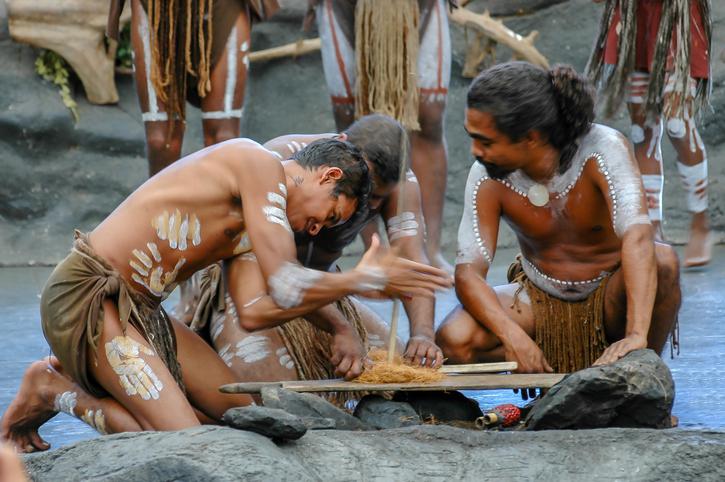As universities look towards the future, rethinking curricula becomes crucial for shaping social, cultural and economic progress, and for producing graduates who are well equipped to respond to the challenges of modern society. Daniel Reyes-Guerra and Ira Bogotch conceptualise curriculum as a “totality of experiences – with multiple dimensions including cognitive, social, political, economic, moral, aesthetic, cultural and spiritual aspects of life”. This highlights the critical importance of developing new and innovative curricula that encompass each of these dimensions.
Entrenched colonial mindsets, however, result in Eurocentric curricula that exclude and marginalise Indigenous epistemes, perpetuating narrow worldviews, which reinforce colonial legacies. To prepare students as thoughtful and engaged global citizens, institutions must embrace a decolonised curriculum that promotes transformative learning and enables the coexistence of multiple knowledge systems. Here – drawing on my analysis of selected publications – I outline five steps that universities can take, to begin the process of decolonising their curriculum and lay the groundwork for a future that embraces many different knowledge systems.
Critique and identify colonial histories
The decolonising task must begin with a critique of colonialism. A first step would be to identify colonial histories that inform curriculum content and our pedagogical practices. Indigenous scholars have argued that, given the colonial curriculum has been characterised by its unrepresentative, inaccessible and privileged nature, a critical examination of how colonial histories continue to shape academic disciplines is required, as this continues to inform both the content and methodologies of teaching.
- Start the journey of anti-colonial work with these first steps
- Indigenising teaching and learning through the Big Five ideas of traditional knowledge
- Decolonisation to Indigenisation: how can institutions centre Indigenous knowledge?
Genuine engagement with decolonisation is not limited to the integration of new material from Indigenous knowledge systems into existing theories. It also requires linking structures of colonialism to the curriculum. This entails both uncovering and addressing content that has historically privileged Western knowledge systems, confronting the ongoing impact of these colonial legacies on contemporary educational practices and structures.
Challenge colonial structures
The next step in decolonising the curriculum is to move beyond merely including Indigenous epistemologies, to actively challenging existing colonial systems and inherent power relations. This requires creating genuine spaces for engaging alternative political philosophies and knowledge systems, changing adverse cultural perceptions and shifting the asymmetrical power dynamics that uphold them. A decolonised curriculum goes beyond being “inclusive” or “diverse”, to necessitate a more radical questioning of the canons of knowledge that inform the Eurocentric curricula of Western universities.
Indigenous scholars believe the central problem is the way Indigenous people are inevitably treated as outsiders. While they recognise culturally based educational initiatives do much to make the academic world more hospitable and relevant for Indigenous students, these efforts fail to address the core issue – the sanctioned ignorance of Western academies. The process of challenging colonial systems requires a shift from “mainstreaming” Indigenous students into the conventions of the university. Instead, Indigenous philosophies and worldviews must be shifted from the margins of academic discourse into the centre so they can be heard.
Revise assessment systems
Revising assessment systems is also essential to addressing the broader inequalities reproduced within the curriculum. This challenge has received very little attention in the recent debates on decolonising. Indigenous scholars point to the way in which the curriculum at every point – from who gets admitted, who thrives, who survives, who fails – reflects the historical and current unequal distribution of educational resources in the broader society.
Therefore, a key challenge in the decolonising project is the recognition that traditional assessment practices often reinforce inequities by privileging certain knowledge and perspectives over others. Decolonising curricula therefore requires assessment regimes that ensure non-Western worldviews and epistemes are afforded parity of esteem. This means developing alternative forms of assessment that genuinely acknowledge and support the varied experiences and strengths of Indigenous students.
Support and resource staff to engage in decolonisation work
To ensure the success of curriculum decolonisation, supporting and resourcing staff is critical. Staff must be provided with adequate time, space and resources to engage in this complex work, and university leadership must legitimise and mandate this work as an immediate and ongoing priority of the university. Additionally, professional development imperatives for staff should be made available, and this work must also be recognised and valued for professional and academic career enhancement.
Adopt a whole-of-university strategy
Achieving lasting change requires a commitment to a clear whole-of-university strategy, supported by leadership at all levels. Such a strategy must embrace decolonisation as a transformative process that challenges sanctioned ignorance and addresses the persistent colonial structures and mindsets embedded in the academy. This means allocating resources, responsibilities and accountability for decolonising efforts across all faculties, colleges, schools and departments. The decolonisation project must be understood as a journey, not as a model, primarily because the work must inform all academic business-as-usual practices as an ongoing priority integrated into the university’s core business.
Why it matters
As centres of knowledge production, universities have a responsibility to lead this effort, promoting social transformation and addressing structural inequalities. Indigenous scholars insist the commitment to decolonisation is not simply about what the academy can do for Indigenous people, it’s also what the academy must do for itself.
If universities continue to ignore or shunt aside Indigenous epistemes, they will remain complicit in continuing to support the colonial project. They will also be failing in their responsibility to provide a comprehensive higher education experience if they do not expose their students to a range of knowledges, perspectives and experiences. If universities choose to act, they have so much to gain. If they don’t respond, they stand to lose much more.
Steve Larkin is pro vice-chancellor (Indigenous Engagement) and deputy vice-chancellor (Indigenous) at the University of Adelaide.
If you would like advice and insight from academics and university staff delivered direct to your inbox each week, sign up for the Campus newsletter.




comment